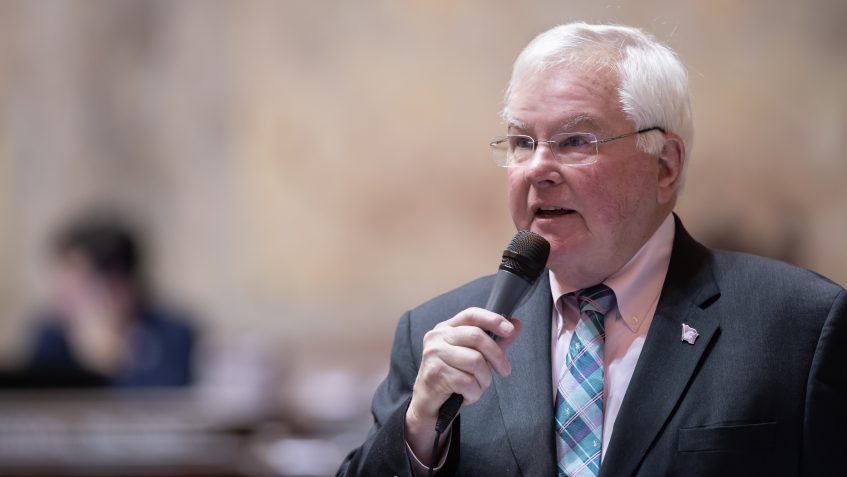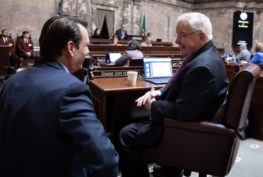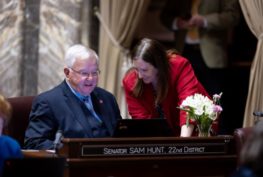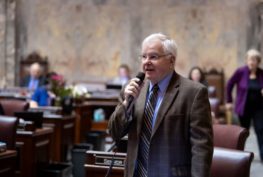Dear Neighbors,
The end is near; or so it appears. April 28th is the last day of the 2019 legislative session, which means we are in the midst of long days and hectic hours working on bills and budgets. Before the 105-day session ends, we must agree upon the 2019-21 operating, capital and transportation budgets. Additionally, any bill that we send to the governor for his consideration must have passed both chambers (the House and Senate) in the exact same form—word for word, period for period.
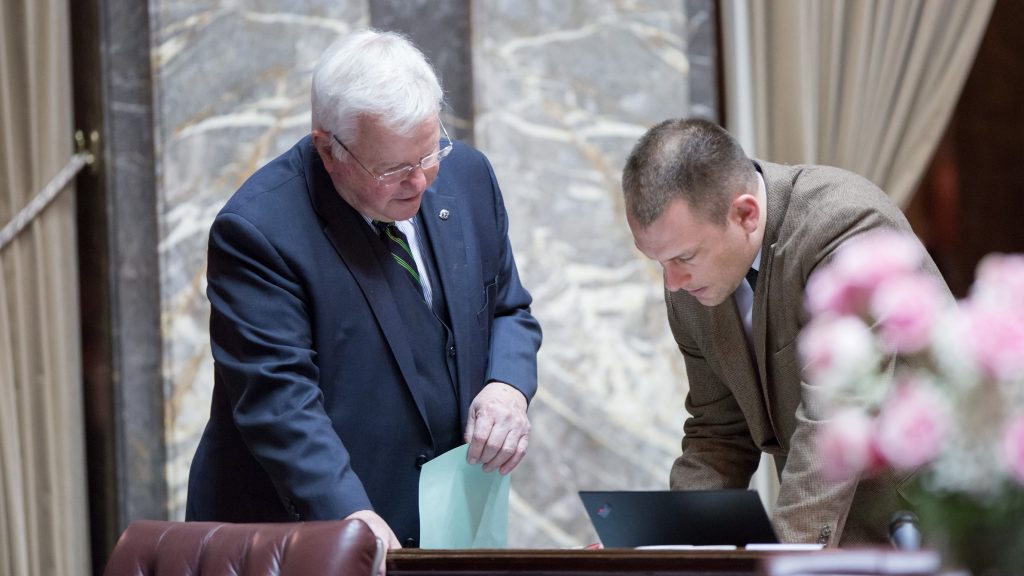
State Budget and Revenue
While this has been a very good session, there is one major worry I have. We may not have the votes to pass the revenue bills needed to secure an operating budget that will address each of our priority issues including behavioral health care, K-12 special education and the environment. It is also my hope that the Legislature will pass revenues that begin to address our state’s regressive and upside-down tax structure. As I have said all session, I stand ready to vote for measures that can make that happen, including:
- A capital gains tax ensuring the very wealthiest people in our state pay their fair share toward the cost of state services that are now disproportionately funded by working households.
- A graduated real estate excise tax (REET) that will reduce the tax on property sales of less than $250,000 and increase it for high-priced sales in excess of $1 million.
- Changes in the business and occupation tax to help small businesses.
I recently joined other senators in sponsoring Senate Bill 6017, which would impose an excise tax on employers who provide annual compensation in excess of one million dollars. We should require those able to afford multi-million dollar salaries to help support the state’s priorities.

Daylight Saving Time
In my last newsletter, I mentioned my efforts concerning daylight saving time. The House and Senate have passed House Bill 1196 that will, if Congress approves, put Washington on full-time daylight saving time. California adopted similar legislation through initiative in 2018, and the Oregon Senate passed a permanent daylight saving time bill that is now being considered in its House. British Columbia is also considering such a move – its premier is an advocate, and a member of the British Columbia legislature has introduced legislation in support of what she calls permanent “time shifting.” While this will not happen immediately, there appears to be interest in Congress to provide this authority to the states.
Vaccines
In response to threats against public health, like the ongoing measles outbreak in Clark County, the Senate passed House Bill 1638 this week. HB 1638 eliminates the personal belief exemption for measles, mumps and rubella (MMR) vaccinations, but continues to allow medical and religious exemptions. It also does not affect personal belief exemptions for all other required immunizations. Current state law requires children who attend school to have received vaccinations for a number of diseases, with exemptions on the basis of medical necessity, religion, and personal belief. This legislation will make Washingtonians safer from measles and other diseases.
Issues Affecting Our District
Representatives Dolan and Doglio and I have been working together on a number of issues and budget items that impact our district. One such bill that passed this week is Senate Bill 5272, which will enable local emergency services in certain counties to ask voters to approve a 0.1 percent increase in the sales tax to support improvements to local emergency communications services and facilities.
During the 2017 Amtrak accident over I-5 in DuPont, emergency responders from Lacey found that their outdated analog communication devices would not communicate with newer digital systems used in Pierce County and Joint Base Lewis McCord. In order to communicate, someone from Pierce County had to navigate around the wreckage and sit in a vehicle with Lacey officials so that messages could be relayed from one side to the other. This, obviously, is no way to run a railroad crash or any other emergency response. Voter approval would allow Thurston County emergency services communications to move into the 21st century.
Thanks for reading. That is all for right now; more details will be coming soon, including wins and losses from the 2019 session.
Here in the Senate we are hard at work on legislation to promote the interests of the people of Washington state. I’d like to hear from you about the issues that are important to you. My office welcomes you to call, write, or stop by to give us your input.
Sincerely,
Sen. Sam Hunt
